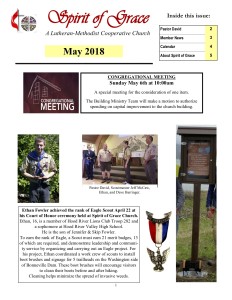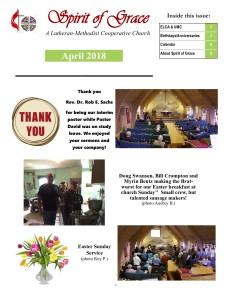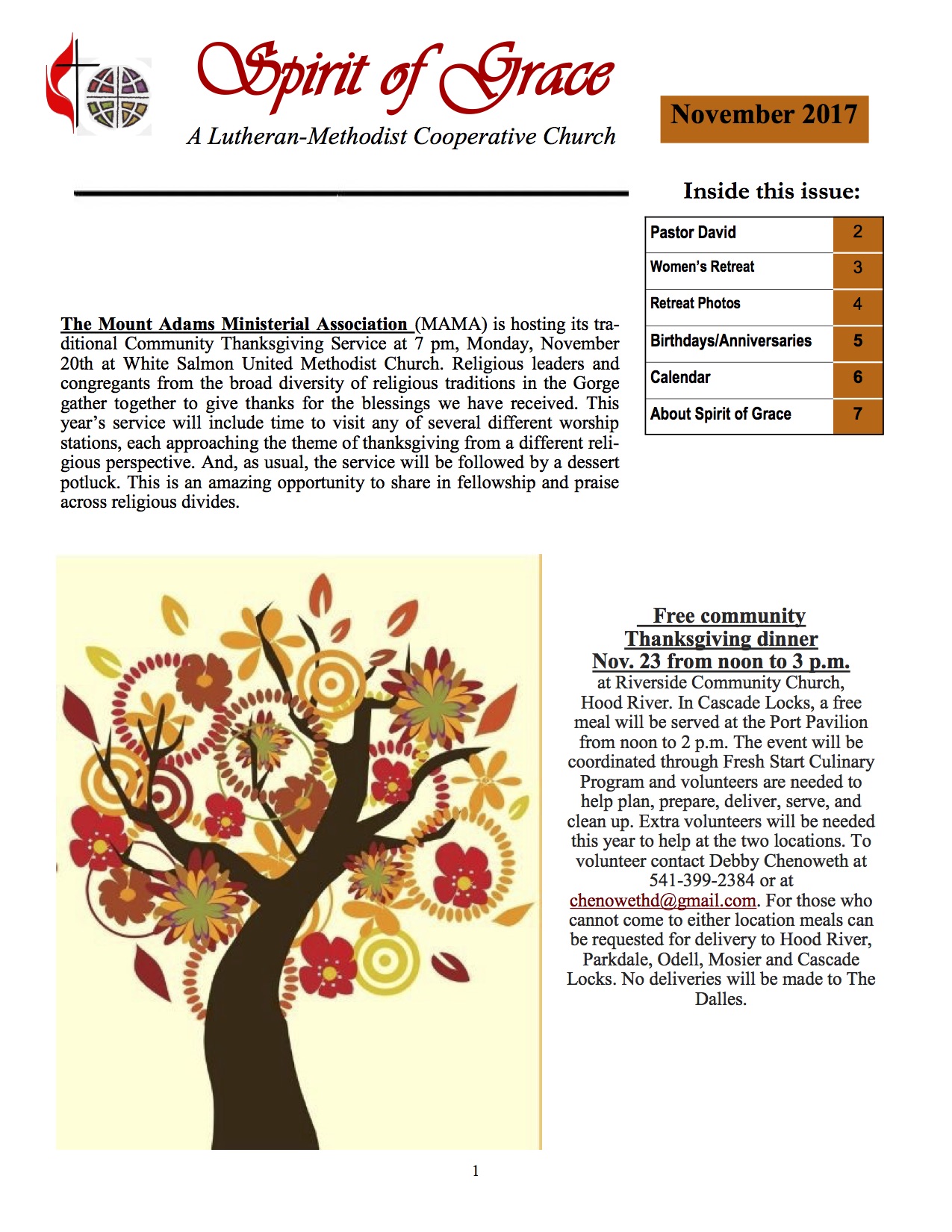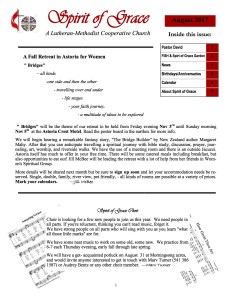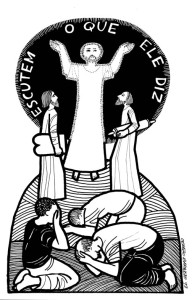Hello FISH Garden Volunteers!
My name is Ann and I am coordinating the FISH Garden this summer.
I want to let you know that we have two volunteer days set up each week:
Wednesdays 3-5 PM
Saturdays 10 AM to Noon.
Come for the whole time or drop in as your schedule allows. We are harvesting greens that made it over winter, preparing beds, planting spring crops, and of course, turning compost.
Another area we could use volunteer help is with growing starts.
Also looking to see if anyone has extra row cover. Apparently, the Food Bank isn’t the only beings we are supplying with delicious fresh produce.
I could use harvesting help this evening Thursday, Apr 19. I’ll be there at 4PM.
Who can teach me how to trap moles?
Finally, let me know if other days and times work better in your schedules. Spring is definitely here! Thanks to all the steady volunteers that have kept the garden vital over the winter.
See you soon
Ann
FISH Garden Volunteer Coordinator
Palm Sunday: Traditional Worship at 9:00 am and Celebration Worship at 10:30 am, April 9, 2017.
Maundy Thursday: Seder meal with Hood River Valley Christian Church, at HRVCC, 6:00 pm, April 13, 2017.
Good Friday: Tenebrae Worship with Hood River Valley Christian Church, at Spirit of Grace, 7:00 pm, April 14, 2017.
Easter Sunday: Traditional Worship at 8:00 am, Easter Breakfast at 9:00 am, and Celebration Worship at 10:30 am.
Sunday 26 February 2017
Transfiguration Sunday
Exodus 24:12-18, Matthew 17:1-9
On this Sunday, every year, we celebrate the festival known as the Transfiguration of the Lord. It is the day we remember Jesus, up on the mountain with his three closest disciples, Peter, James, and John, surrounded by a divine cloud, visited by Moses and Elijah, transformed in appearance. This Sunday, though, I’d like to focus on one of our other readings in order to get a better perspective on Jesus’ transfiguration.
When one text in the bible harkens back to another text in the bible, we call that intertextuality. The story of the transfiguration depends on a great amount of intertextuality. One of its intertexts is the story we read today from the book of Exodus And exploring that story from Exodus is going to give us a much better understanding of the transfiguration story, that is partly based upon it.
Exodus, as you may know, recounts the story of Moses leading God’s people, the Hebrews, out of slavery in Egypt and toward their new home in the promised land. This particular part of the story happens after the people have been freed and left Egypt. God has led them to a great mountain, where God’s presence dwells powerfully.
As you may know, Sinai is where God granted the holy law to God’s holy people. We know that Moses went up on the mountain and received the ten commandments. When he came down later, the Israelites were worshipping a golden calf and Moses broke the stone tablets of the law.
If you try to read the account in Exodus, though, it’s a lot more complicated than that. The whole encounter starts in chapter 19. By chapter 20, God is speaking the words of the law. God keeps on talking all the way into chapter 24. Then we get to the bit we read today, which is followed by more instructions from God. Moses doesn’t come down off the mountain to find the golden calf until chapter 32. Over the course of those 12-chapters-worth of commandments, it’s hard to keep track of who is on the mountain, who is off the mountain, or where on the mountain various people are.
At the beginning of our chapter, chapter 24, Moses goes at least part way up the mountain along with Aaron and several elders. We are told that all of these elders saw God, even though just a few verses before it was claimed that they would not be allowed to see God. Then, we are told that Moses and Joshua went up the mountain to receive the stone tablets. Did they just go farther up the mountain? We don’t know. All of the commandments have already been spoken. Did everyone hear them? It’s not clear.
In any case, at this point in the story, we are told that Moses and Joshua go up the mountain to receive the tablets. Presumably the elders stay at some point farther down the mountain. Then we are told again that Moses goes up the mountain, this time with no mention of Joshua. It’s all very confusing.
Clouds begin to cover the mountain. We had been told the same thing at least two times before, but again, clouds cover the mountain. God’s presence, which is usually described as looking like fire, is also on the mountain. Is Joshua up there with him? Maybe. He seems to come back down the mountain with Moses eight chapters later, but he doesn’t do much in the intervening time.
Moses has gone up to get the stone tablets that God has inscribed with the law. But he doesn’t get them right away. He just stays up there in God’s presence for six days and we aren’t told what happens. On the seventh day, a voice comes out of the cloud and calls to Moses. Then we are told for a third time in these very few verses that Moses goes up the mountain.
So, to review our tiny section of chapter 24, Moses goes up the mountain with the elders. They see God, and they have a meal. Then a cloud comes upon the mountain, and Moses goes up the mountain with Joshua and enters the cloud. He waits for six days. On the seventh day, God calls from the cloud and Moses goes up the mountain. He stays there for forty days and forty nights.
The point I’m trying to get across is that this narrative doesn’t make much sense. Everything is jumbled. We could work really hard unravel the complexity of all of the strange details, but really, this section of Exodus just defies understanding.
And perhaps that is understandable. After all, this passage is trying to describe a direct experience of God. It’s no wonder that it’s hard to make sense of. It’s no wonder that everything seems confused and confusing. This is the most important event in the Hebrew Bible. This is when God makes a covenant with God’s people. This is when God grants the law and the instructions that have guided the lives of billions of people. That kind of an experience cannot be explained or contained by a simple narrative. It’s no wonder, when it comes to such an indescribable event, that the biblical writers have a hard time describing it.
A couple of millennia later, Jesus leads some of his disciples up onto a high mountain. “Six days later,” the passage begins, reminiscent of the six days Moses waited. He brings with him his inner circle: Peter, James, and John. It gives bit of the sense of the layering that we got on Mt. Sinai, with the people on the plain, the elders a little higher up, and Moses with his most trusted advisor up a bit farther. Presumably, something similar happens here, with the people and crowds below, the disciples up a little closer, and Jesus and his three closest disciples farther up the mountain. His face begins to shine. It’s not unlike Moses, whose face would shine after he had conferred with God in the tabernacle. His clothes turn dazzlingly white. Moses and Elijah suddenly appear alongside Jesus. Of course, we are not surprised that Moses is there.
The three disciples are a bit dumbstruck. They know that this is the sort of thing that hasn’t happened since the time of Moses. They know the stories of Moses on the mountain, in the presence of God, receiving instructions directly from God. They know that this is no ordinary mountain and that they are having no ordinary experience.
Peter, who is the only one who can manage to speak, suggests that he could build three shelters for Jesus, Moses, and Elijah. During the festival of Sukkoth, Jews build little shelters and live in them for a week to remember the forty years that Israel spent in the wilderness. So, Peter offering to build these shelters means that he expects another Sinai. He knows that this is some kind of direct experience of God. He expects that God is going to give a new law, just like God gave to Moses on the mountain at Sinai.
While Peter is still talking, all of his suspicions are confirmed. Suddenly a bright cloud appears on the mountain, the glorious presence of God, just like it appeared on Sinai centuries before. And then a booming voice speaks from the cloud, the voice of God, just like it spoke from the cloud on Sinai.
This divine voice has a message about Jesus. “This is my Son, whom I dearly love. I am very pleased with him. Listen to him!” In other words, Jesus is the expected Messiah. He can speak directly to God, like Moses did. And he is a new lawgiver, a new Moses. Listen to him. Listen to his instruction, just as the people listened to the instruction of Moses long ago. And of course, this reminds us of the mountain top experience that we have been hearing in the gospel readings for the last month—the Sermon on the Mount—when Jesus takes on the role of lawgiver, just like Moses did centuries before.
Nearly every word of Matthew’s story of the transfiguration harkens back to the story of Moses on the mountain. And the story of the transfiguration is just as confusing as the story of Moses. Things appear and never disappear. But it’s the sort of thing that we should expect of a story about a direct experience of God. Those sorts of experiences never make sense to the rational mind; they can never be explained in mere words.
This story of the Transfiguration, taken on its own, is impressive. It reveals the divine identity of Jesus. It shows him in his glory. But when we read it along side the story of Moses at Sinai, it becomes much more rich. Suddenly the lights and the smoke and the special effects take on a new meaning. Jesus, and the covenant that he represents, is tied intimately to Moses and the covenant that he represents. Jesus is a new thing, but he is also tied to the old. He takes the covenant offered to God’s chosen people, and he expands it. He offers gentiles a chance to become part of God’s family. But he does not abolish Moses or the old covenant. He does not abolish it, he simply expands it, and he offers us the chance to be a part of the special relationship that God has already established with the Jews.
Jesus makes a new covenant. In it, God promises to be our God, to accept us as God’s people, to forgive us, lead us, bless us, listen to us, guide us, change us, redeem us. And we promise to be God’s people, to seek God in our prayers, in our praise, in our searching the scriptures, in our interactions with neighbors, in the way we use our money, in the ways we offer our service, in the choices we make, in the ones we love.
In Jesus, God makes a new covenant with us, a covenant that is founded on the older covenant with Moses. And in it, we find the foundations for the other covenants in our lives. The covenant God has with us informs the sacred covenant between spouse and spouse, the sacred covenant a parent has with a child, the sacred covenant we share within this congregation, the sacred covenant we share with those in our community, the sacred covenant we share with all of God’s children, no matter where they come from, what language they speak, or how they worship.
In the transfiguration, we see and remember the covenant God has with all people. We see and remember the covenant we share with each other. And we are called to live as children of the covenant, who worship God as our God and who seek always to be God’s people, formed by the love God has shared with us, and moved always to share that same love with everyone we meet. Thanks be to God.
Sunday 12 February 2017
The Sixth Sunday after the Epiphany
Matthew 5:21-37
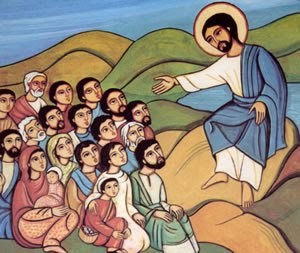 For a third week, now, we have been reading from the section of Matthew known as the Sermon on the Mount. It is one of the best known and best loved pieces of scripture in the entire bible. Many consider it to be the very heart of the gospel message, the canon within the canon, the text by which all other texts are judged. The text that begins, “Beloved are the poor in spirit,” is itself a text much beloved.
For a third week, now, we have been reading from the section of Matthew known as the Sermon on the Mount. It is one of the best known and best loved pieces of scripture in the entire bible. Many consider it to be the very heart of the gospel message, the canon within the canon, the text by which all other texts are judged. The text that begins, “Beloved are the poor in spirit,” is itself a text much beloved.
And yet, it is a text that can be very confusing. It confounds many of the assumptions that we have about the bible. It disrupts many of the beliefs we have about the New Testament. It confuses many of the things we think we understand about Jesus.
Though many of us have been taught that Jesus came to free us from the law, to set aside the outdated rules of the Old Testament, the Jesus of the Sermon on the Mount declares quite the opposite. In Matthew 5:17, he says, “Don’t even begin to think that I have come to do away with the Law and the Prophets. I haven’t come to do away with them but to fulfill them. I say to you very seriously that as long as heaven and earth exist, neither the smallest letter nor even the smallest stroke of a pen will be erased from the Law until everything there becomes a reality. Therefore, whoever ignores one of the least of these commands and teaches others to do the same will be called the lowest in the kingdom of heaven.”
In the section of the Sermon on the Mount that we read today, Jesus proceeds to go through several of the Old Testament laws and comment on them. “You have heard that it was said,” he begins, and then quotes one of the old laws. And then he follows up with, “But I say to you,” and he gives a new law. If we think that Jesus preaches a new existence free from the old law, then we might expect Jesus to take the old law and soften it up a bit. We might expect Jesus to do away with some of the more archaic aspects of the law.
But to our surprise, Jesus does quite the opposite. For every law that Jesus quotes, he gives a harsher, more restrictive law in its place. The old law said don’t murder. Jesus’s new law says expressing anger is the same as murder. The old law said don’t commit adultery. Jesus’s new law says that looking with a lustful eye is the same as committing adultery. The old law allowed for divorce. Jesus’s new law does not. The old law said that anyone who swears an oath should keep it. Jesus’s new law says that no human should ever presume even to swear an oath. And while the old law only threatened death for those who do not obey, Jesus’s new law threatens the fires of hell.
If we were expecting a law-breaking, carefree Jesus, then we will be very much surprised. Instead, we get a new lawgiver. We get a new Moses. Jesus comes down from the mountain, just as Moses did, and gives a new law, just as Moses did. And the law that Jesus gives is even more difficult to accept than the law of Moses. It is even more strict and unrelenting.
This sermon disrupts the way we usually think about Jesus, but it also disrupts the way many of us think about the bible. This passage from today is the proof that, whatever people may claim about the bible, no one actually reads it literally. Many people claim that the bible is the exact and precise word of God and there is no need for any interpretation because it says just exactly what God means it to say. But this passage is the proof that no one actually believes that. Because, of course, if we did actually believe that, then there wouldn’t be a single Christian in the world walking around with two hands and two eyes. Jesus says very clearly and unambiguously, “If your right eye causes you to fall into sin, tear it out and throw it away. It’s better that you lose a part of your body than that your whole body be thrown into hell. And if your right hand causes you to fall into sin, chop it off and throw it away. It’s better that you lose a part of your body than that your whole body go into hell.” Surely there is not one Christian in the entire world who has never sinned with their eye—looking on something they don’t have and wanting it for themselves—the sin of covetousness and greed. And yet I have never met any Christian who has plucked out their own eye, as Jesus commands, in order to avoid the fires of hell. And surely there is not one Christian in the whole world who has not sinned with their hand—raising it against another in anger, or taking what belongs to another, or failing to reach it out in service and charity to one in need. And yet I have never met a single Christian who has chopped off their own hand, as Jesus commands, in order to avoid the eternal punishment. We may think we read the bible literally, but none of us actually do.
And perhaps we are not meant to. After all, none of the apostles cut off his own hand that day on the mountain. None of the disciples plucked out her own eye. So what are we supposed to get out of this very strange sermon?
I think some of it has to do with the way we judge others and the way we have a tendency to think of ourselves as somehow qualitatively better than others. After all, we are Christians, aren’t we? We are blessed by God. We do our best to follow God’s laws. Surely that counts for something. Surely that makes us better than the unwashed masses who never have a care for anything that is good or right or just or Godly.
Surely I am better than a murderer, aren’t I? And yet Jesus says that anyone who lashes out it in anger is liable to the same divine punishment as the murderer. And there is not one of us who has never burned with unrighteous anger. Jesus confronts our self-righteousness and declares that not one of us has grounds to claim that we are better than a murderer.
But surely I am better than an adulterer, aren’t I? I have kept my marriage vows. And yet Jesus says that anyone who looks on another with a lustful eye is liable to the same punishment as the adulterer. And, as Jimmy Carter so truthfully pointed out, there is not one of us who has not committed adultery in our heart many times. Jesus confronts our self-righteousness and declares that not one of us has grounds to claim that we are better than an adulterer.
He seems to be saying something similar about divorce. If I get a divorce because I have found someone I think I love more, and if I refrain from physical union until after the divorce is final, that technicality does not excuse me from adultery. That’s the overall message of this section: we can’t think that we have avoided judgment simply because we have found some loophole in the law. We can’t think that we are better than the people around us simply because we have committed less visible sins than they.
Despite any outward appearances to the contrary, we are all sinners. We all carry around our enduring guilts, our secret shames. That is something that every human being has in common. We have all fallen short of the glory of God.
What Jesus’s words do is to hold together two contrary notions at the same time. Jesus’s words challenge us to do better, to strive for lives of perfect holiness. But at exactly the same time, Jesus’s words remind us that whatever level of holiness we may live, it cannot be the ground for boasting. Jesus calls us simultaneously to perfect obedience and to perfect humility, neither letting our obedience puff us up until we lose humility nor letting our humility break us down until we see no point in striving for obedience.
Actually, it’s a lot more complicated than that. If I strive for holiness, there are several different traps I might fall into. I might be so proud of my holiness that I think I am better than other people. I might hold myself to such an impossibly high standard that I constantly feel incapable and unworthy. I might fixate on a few kinds of holiness so that I miss many other important things I should be doing. I might use the standard of holiness only as a means of judging and condemning other people, while never holding the same standard up to myself. I might be so concerned with doing what is right that I forget about God’s grace, grace for me and for my neighbor. I might put so much pressure on myself and my own abilities to do what is right that I forget that true holiness comes not from working hard, but from allowing God to work in me. Those are ways that striving for Godliness can end up running off the rails.
And humility is just as tricky. If I am striving for humility, I might end up just not trying, just doing nothing because nothing matters. I might end up constantly beating myself down, trying to make myself lower and lower, so that I don’t reach humility, instead I reach humiliation, self-loathing, and crippling depression. I might end up achieving a fair level of humility, until I come across someone who is boastful, and I end up thinking, I am so much more humble than he is. I might hold myself to such a strict standard of humility that I can’t honestly assess my own strengths, and I don’t ever end up using my talents for God. I might put so much pressure on myself to be humble that I forget about God’s grace, grace both for me and for my neighbor. I might put so much responsibility on myself to be humble that I forget that true humility comes not from working hard, but from allowing God to work in me.
It may sound like just more rules, just more regulations, just more law. Why is Jesus making it harder for us? Why is Jesus stacking up more things that we have to do in order to be worthy of God? It may seem like just more law.
But in fact, it is more grace. By making the rules more strict, Jesus is making sure that none of us have the delusion that we can actually follow them all ourselves. We are in need of God’s grace. It’s not just the Class-A sinners that need God’s grace. We all need God’s grace. And there is plenty of God’s grace to go around. That is the first step: to realize that I am not perfect, and I can never make myself perfect, no matter how hard I try. I make mistakes. I am a sinner. I am in need of God’s grace. And God has plenty of grace to go around.
But it doesn’t end there. It doesn’t end with me recognizing that I am a sinner and asking for God’s grace. The strictness of the rules remind us that there is still a goal. And once I have accepted God’s justifying grace, God’s forgiveness, then I can begin to be open to God’s sanctifying grace, the Spirit’s continuing work in my life to make me holy. I can begin to let the Holy Spirit work within me, once I have accepted God’s grace. And God’s Spirit can help me to have grace with my neighbors, even though they too are sinners. God’s Spirit can help me to have grace with myself, even though I am a sinner. God’s Spirit can begin to work in my life, so that my actions move closer to the mark, so that I more fully embody the life that God wants me to lead, the self that God wants me to be. But I am not making myself acceptable to God. No, God’s grace makes me acceptable, and God’s grace molds me into fuller realization of that perfect goal. I work with God, and I allow God to work in me, but I can never do it on my own in order to please God. God’s grace forgives me, and God’s grace moves me on toward greater holiness, greater humility.
It doesn’t happen all at once. It doesn’t travel in a straight line. There are times when I can really feel in sync with God, when I can really feel that God is working in me, that God is leading me to avoid evil and do good. And there are other times when I stumble and fall into sin. There are other times when I try to take control and end up fouling everything up. There are other times when I stubbornly resist God. There are other times when I simply fumble around, trying desperately to find any sense of God at all.
It takes time. It takes active, patient endurance. It takes acceptance of myself and who I am. Not perfect, but a beloved child a God. A child in need of grace. A child of a God who has plenty of grace to share.

